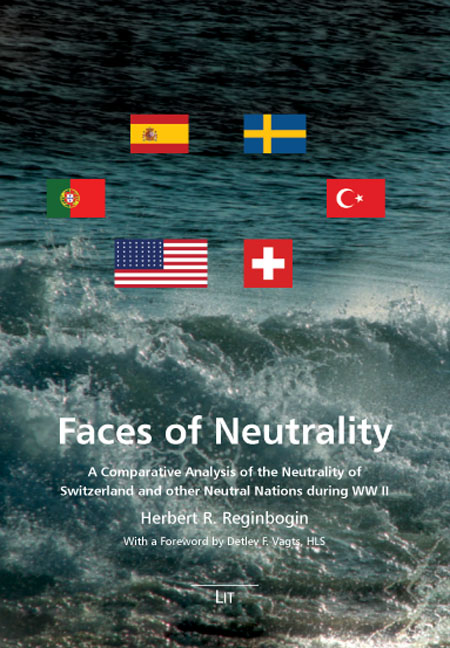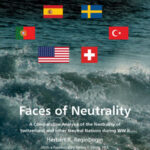Beschreibung
“Herbert Reginbogin’s important book fills a historical gap, and acts as a
valuable corrective in the general treatment of Switzerland’s role during
the Second World War. In addressing all of the moral and historical
charges laid at Switzerland’s door in relation to Nazi Germany, it does
not offer an apology but, far more valuably, provides a sustained, nuanced
analysis of the issues at stake. It is a work of contextualization and
comparison that seeks to understand.”
Donald Bloxham, University of Edinburgh, Scotland, Professor of Modern
History, Philip Leverhulme Prize in 2006
“Contending that Swiss neutrality during the Second World War has not only
been misunderstood, but has also been unfairly stigmatized, Herbert
Reginbogin’s learned and wide-ranging assessment offers a much-needed
corrective to received wisdom on the subject. Commendably, he presents a
comparative assessment, comparing the Swiss both to European neutrals, and
to the United States – which, it is often forgotten, defended the posture
of neutrality for the first two years of the war. Reginbogin’s study
highlights the need for careful assessment in the context of more than
half a century ago. Seen in those terms, the behavior of the Swiss emerges
far more nuanced, more driven by the desperate conditions of total war,
and far less susceptible to present-day moralizations than in the work of
many writers. This is an important contribution, which deepens our
understanding of the Second World War.”
Michael R. Marrus, University of Toronto, Chancellor, Rose and Ray Wolfe
Professor Emeritus of Holocaust Studies
“Herbert Reginbogin brings a slightly different picture of Swiss
neutrality during World War II to life, pointing at the political
necessity of a small country surrounded by enemy forces to compromise. In
comparing the Swiss policy towards the Nazi regime to that of other
neutral states and to the USA he argues that the Swiss managed to uphold
its credibility. A truly valuable contribution to the concept of
neutrality in international law and politics.”
Christoph Safferling, University of Marburg, Germany, Professor of
International Criminal Law, Director International Research and
Documentation Center for War Crimes Trials


